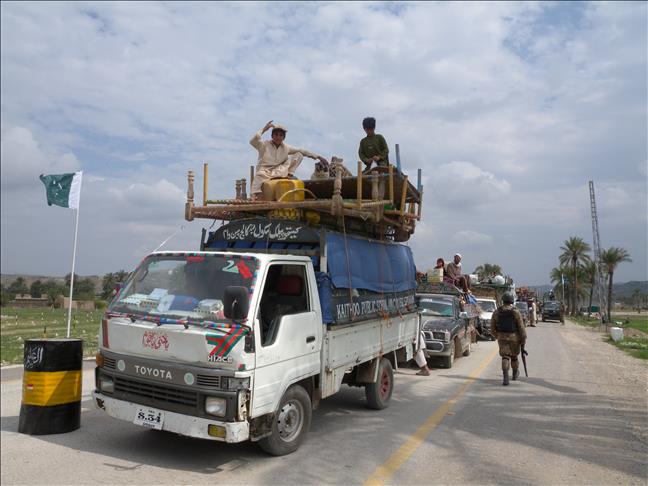
BANNU, Pakistan
For 70-year-old Iqbal Masih, being away from his home in North Waziristan, in Pakistan's northwestern tribal belt, for the past nine months has involved difficulties that many others have not had to face.
The former soldier is one of 1,500 Christians who were displaced when the army began operations against the Taliban in June. Another 200 Hindus add to the minorities who have been forced to live a precarious life away from the comforts of home.
Along with 85 other Christian families, Masih lives in a makeshift camp in the courtyard of a church in Bannu, where an Islamic charity has provided them with tents and supplies. He says he misses the life he had in North Waziristan.
"There is a big difference between the Waziristan and here. We had respect and honor there, which we do not have here. We are mere IDPs (internally displaced persons) here," said Iqbal, who moved to North Waziristan 50 years ago while serving in paramilitary forces.
He said he enjoyed the culture and respect given by locals and so chose to stay in the area after retirement.
"I am a Waziristani. My children are sons of the soil. We just want to go back. We can't wait for that," said Masih, as tears rolled down his wrinkled cheeks. "We are not more than 1,500 out of 1.5 million people but we never felt like aliens."
Most Waziri Christians live in the troubled region's two main towns, Miranshah and Mir Ali. Both have been badly damaged by the ongoing military offensive but, unlike many Waziris, they are eager to return home.
"At least, I will reclaim my respect there even if my house is now rubble," he Masih.
Uzma Zafar, a female Christian school teacher, said she misses the respect she was granted within the Pashtun society of North Waziristan.
"I am Ustani ji (teacher) for the whole village, so people go out of the way for me because I teach their children. But here I and my children have to stand in queue for smaller needs," said Uzma, clad in the traditional black veil. Three other women sitting next to her are also wearing the veils.
"There is a strict Pardah [veil] code there [in North Waziristan]. We hardly go out there. Here you can go shopping without veil but we do not feel comfortable here," she said, with her friends nodding their affirmation. "You may have a different opinion about tribal culture but women have special respect in it."
Despite the difficulties of living in a conflict zone like North Waziristan, Uzma said the Taliban rarely bothered minorities, despite the militant group's reputation for brutal behaviour.
"They had issues with security forces and other rivals but they never touched Christians and Hindus there," she said. "I was caught in cross-firing between Taliban and security forces twice, but they [Taliban] gave me and other women safe passage."
She said that when there were security problems in North Waziristan, local people protected women, an attitude that does not extend to Bannu.
Khalid Iqbal, head of a tribal minorities group added that, in some cases, the Taliban were more lenient on minorities than on Muslims.
"They even gave us leverage that they did not give to Muslims, like with the violation of their ban on cable television or music," said Iqbal, an amateur singer.
"I miss the secret music parties where I was invited by locals to sing," he said with laugh. "Not only I, but many Waziris also miss my singing."








